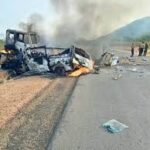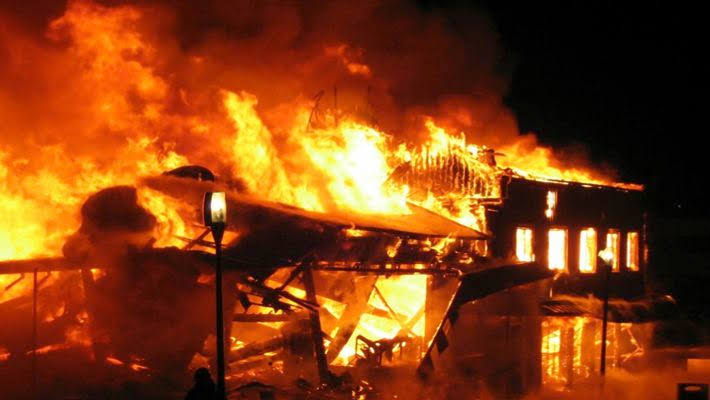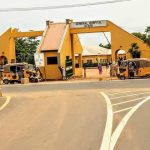By Aisha Yusuf Waziri
In the early hours of December 2, 2024, Moniya Market in Ibadan was engulfed in flames, leaving devastation in its wake. The fire, reportedly sparked by a power surge, razed at least 17 shops, destroying goods and cash worth millions of naira.
Traders who relied on the market for their livelihood were left in shock, grappling with the magnitude of their losses.Markets like Moniya are not just commercial hubs but also the heartbeat of communities.
They represent the hopes and dreams of countless small-scale traders striving to make ends meet. This tragedy, therefore, goes beyond physical destruction; it is a blow to the very spirit of resilience that defines the traders and the community at large.
Eyewitnesses recounted the swift progression of the fire, emphasizing the inadequacy of early response mechanisms.
Though firefighters eventually arrived to contain the blaze, the damage had already been done. It raises urgent questions about the state of fire safety in our public spaces and the need for proactive measures to prevent such occurrences.
The loss at Moniya Market is not only financial but also deeply emotional. Many traders stored their entire inventory in their shops, and with the fire, their means of survival were reduced to ashes.
For some, this incident marks the loss of years of labor, investment, and dreams.In the face of such adversity, the strength and resilience of the affected traders are truly commendable. Stories of support from fellow traders and community members highlight the unity and compassion that emerge in times of crisis. Yet, compassion alone cannot restore livelihoods.
This tragedy underscores the need for governmental and institutional support. Immediate relief is crucial, but long-term solutions such as providing interest-free loans, reconstructing the market with fire-resistant materials, and implementing comprehensive fire safety protocols are equally vital.Moniya Market’s fire is a harsh reminder of the vulnerability of our economic systems.
The informal sector, which employs millions of Nigerians, requires greater protection. Investments in infrastructure, regular safety drills, and accessible insurance schemes for traders could mitigate the impact of such disasters in the future.
Beyond economic recovery, there is a need for psychological support for the victims.
Losing one’s source of income and means of sustenance can be traumatic. Counseling services and community-driven initiatives to rebuild morale will be integral to the recovery process.The government and non-governmental organizations have a crucial role to play in this recovery.
Their efforts in providing grants, offering reconstruction plans, and addressing the systemic issues that allowed the tragedy to unfold will determine the pace of recovery.
Equally, citizens must demand accountability. Power surges and electrical faults are preventable causes of fires. This incident should propel the authorities to investigate and enforce stricter regulations for electrical installations in markets and public spaces.
Looking at the broader picture, the Moniya fire is a call for society to rethink its priorities. Supporting small-scale traders must become a policy focus, ensuring that they are equipped to handle disasters and bounce back swiftly when they occur.
This tragedy also reflects the larger narrative of neglect that public markets often face. While they are vital to Nigeria’s economy, they rarely receive the attention they deserve in terms of infrastructure and safety measures.
To the victims of the Moniya Market fire, we extend our deepest condolences. Words may not suffice to capture the depth of your loss, but we stand in solidarity with you. Your courage in the face of adversity inspires us all to strive for a more secure and supportive system for our traders.
May this tragedy serve as a catalyst for meaningful change, reminding us all of the importance of preparedness and the strength of community in overcoming challenges. Together, we can ensure that the dreams that were reduced to ashes in Moniya will rise again.
Aisha Yusuf Waziri is a 300 level Student from Mass Communication Department Borno State University Maiduguri.












